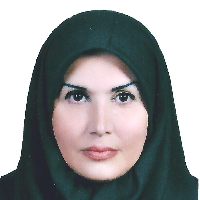Futures Studies of the Environmental Component in Educating Cities: An Approach Based on Global Experiences
Author(s):
Article Type:
Research/Original Article (دارای رتبه معتبر)
Abstract:
In the present era, environmental challenges have increased the necessity of reducing the temporal and spatial limitations of environmental education in cities, and the need for effective educational frameworks in this field is felt. In this regard, the current Futures Studies research examines the criteria and indicators important in the conceptual model of the environmental component of the educating city in Iran which is based on global experiences, further, the present research aims to analyze effective criteria and indicators in the environmental component in the educating cities with the use of global experiences. This research is conducted with an interpretive philosophy, an inductive approach, and an applied strategy, employing a descriptive-content analysis method and utilizing mixed methods design (qualitative-quantitative). The statistical population consists of 30 urban planning experts selected through a convenience sampling method. The data has been collected through library and field studies and data collection tools of documents and expert questionnaires. The findings of the research, based on the content analysis of 10 successful global experiences and using the Friedman test and structural equations, showed that 6 criteria of awareness, attitudes, policies, skills, behaviors and social-environmental interactions, with weights of 3.71 and 3.54, 3.48, 3.45, 3.42 and 3.40, respectively, on environmental development and its dimensions, including protection of aquatic ecosystems, optimal use of natural resources and energies, environmental protection, urban green development, promotion of public health, preservation of biodiversity and waste management have been effective with 29.66, 28.11, 27.44, 23.33, 18.94, 17.36 and 6.70 units respectively. The results reveal that adopting a comprehensive approach by utilizing the city’s capacity as a platform for environmental education, focusing on enhancing awareness, skills, attitudes, and behaviors, as well as strengthening social interactions and reforming policies, can create a conducive environment for environmental education and achieve environmental development.
Keywords:
Language:
Persian
Published:
Journal of Geography and Regional Future Studies, Volume:2 Issue: 3, 2024
Pages:
24 to 42
https://www.magiran.com/p2799891
سامانه نویسندگان
مقالات دیگری از این نویسنده (گان)
-
Explaining the Model for Promoting the Position of Professors in Contemporary Architecture Education Case Study (Selected Universities in Iran and Giliçim University, Istanbul, Türkiye)
Hassan Torabi, Razieh Labibzadeh *,
Journal of Studies of Behavior and Environment in Architecture, Spring 2025 -
Examining the Impact of Seasonal Changes on Embodied Perception Capabilities and Behavior: A Case Study of Darakeh, Tehran
Saeed Sharifkazemi, *, Maryam Ghalambor Dezfuly
Bagh-e Nazar, May 2025 -
Role of Artificial Intelligence in Optimizing and Enhancing the Accuracy of Parametric Urban Planning and Design
A. Manuchehri, H. Zabihi*, Z.S.S. Zarabadi
Geographical Research, Winter 2025 -
Traditional Neighborhood Development (TND) Based On Local Schools of Urban Planning Using Two Analytical Methods, TOPSIS and Multiple Regression (Case Study: Tabriz School of Urban Planning)
Morteza Lotfipour Siahkalroudi, Zahrasadat Saeideh Zarabadi*, Mostafa Behzadfar,
Journal of Life Space,




